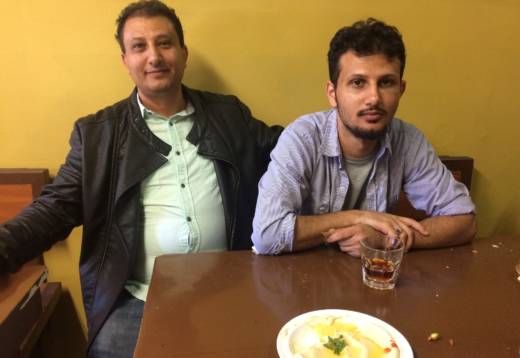Since the current travel ban went into effect last December, it has become nearly impossible for people from the impacted countries to obtain new visas, according to immigration lawyers.
Consular officers may grant waivers on a case-by-case basis, if applicants meet certain criteria, including "undue hardship," if the visa is denied.
In the last six months, the U.S. has issued only about 809 waivers to citizens of the countries covered by the policy, according to an official with the U.S. Department of State.
That's a tiny number compared to the number of people who are waiting for a visa, said Elica Vafaie, an attorney with Asian Americans Advancing Justice – Asian Law Caucus in San Francisco.
"We've seen families being separated from their loved ones, people who can't get medical attention and people who are trying to come here to study," she said.
Vafaie expects more legal challenges to the administration's travel ban, as the Supreme Court remanded the issue to the lower courts.
"We'll fight not just in the courts but through rallies," Vafaie said. "There's elections coming up. There's different policy advocacy so the fight will really be inside and outside of the courtroom."
Just hours after the court's ruling, San Francisco Supervisor Ahsha Safaí was the first speaker blasting the court's ruling at a gathering of immigrant advocates and their supporters.
"I'm here to say President Trump, we will not back down. We will continue to fight!" Safai said.
He told the small crowd by the steps of City Hall that his father is from Iran, one of the countries listed in the ban.
"I would not be standing here today if the shameful decision that was handed down by the Supreme Court had been handed down and had been in place decades ago," Safai said.
At a Yemeni restaurant in the city's Tenderloin neighborhood, Mohammed Albarak talked about next steps with his father, Ahmed, over a lunch of hummus, pita bread and fried beans.
Mohammed, 23, is a University of California graduate. He's getting married next month in Yemen. He said he had been waiting for the court's ruling before submitting a visa application for his fiancee.
"I've been working on it, I have everything set," he said. "But now I don't see any reason to start any processing or going through any application, because it's useless," he said. "I'm disappointed. I'm frustrated."
Mohammed said he took the step of becoming a U.S. citizen two months ago, believing he would have a better chance of sponsoring his future wife to live in this country.
"I thought I'd have more privileges and I would be able to do more. But it sounds like it doesn't matter," Mohammed said. "My only option now is to spend time back home in Yemen, then return and work here as much as I can, and wait until Trump's presidency ends."

